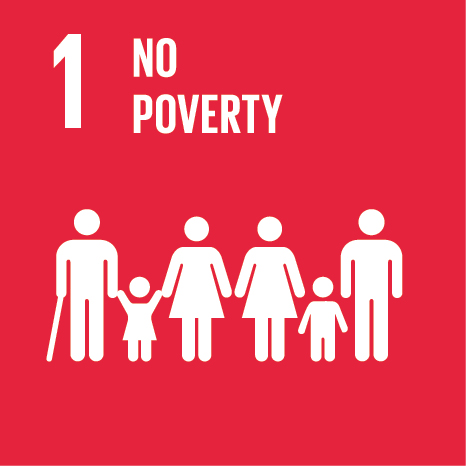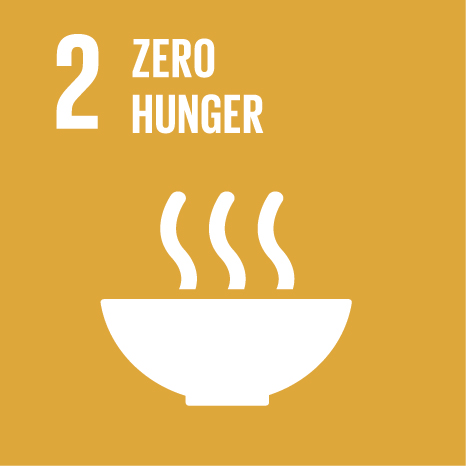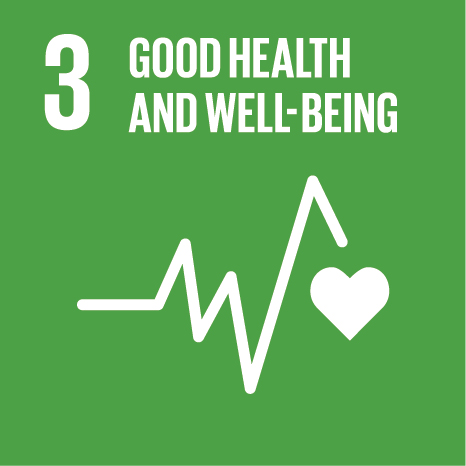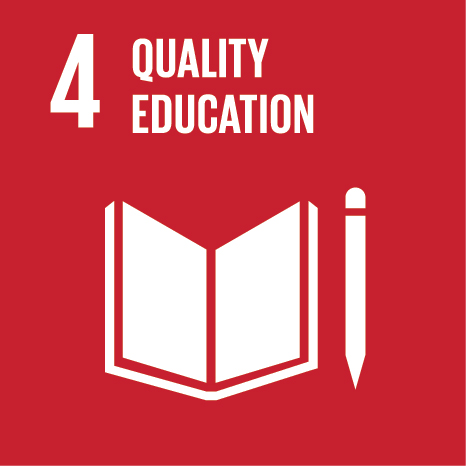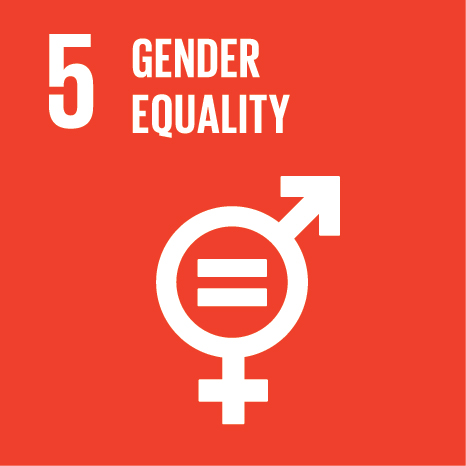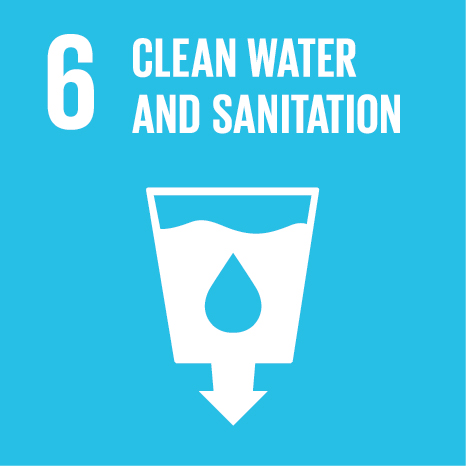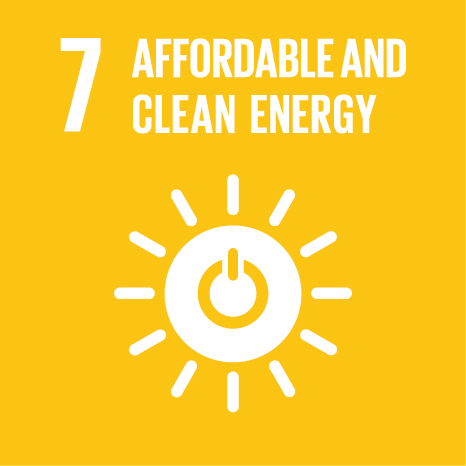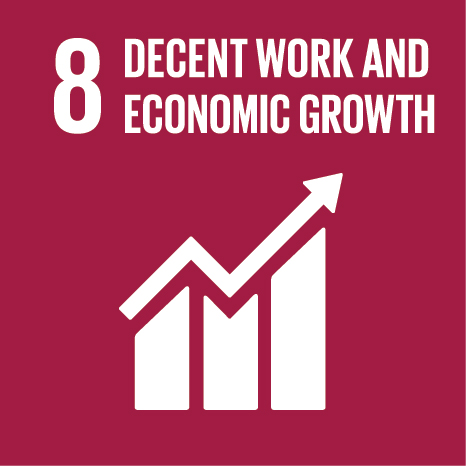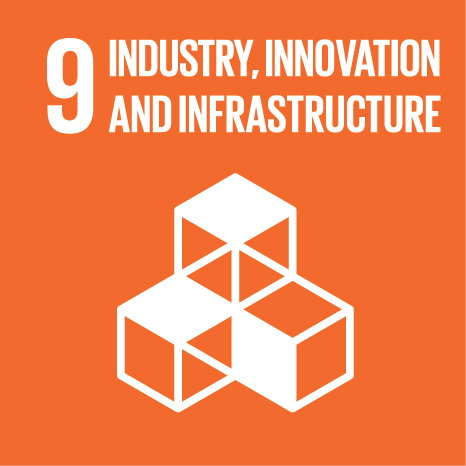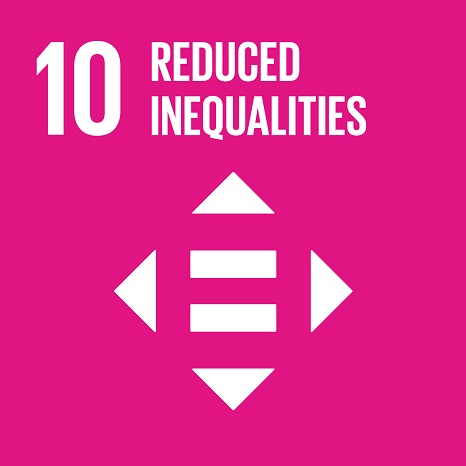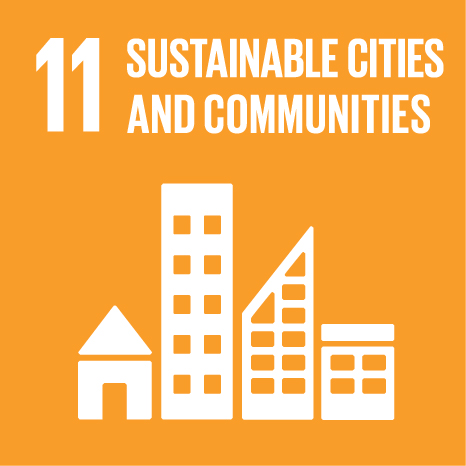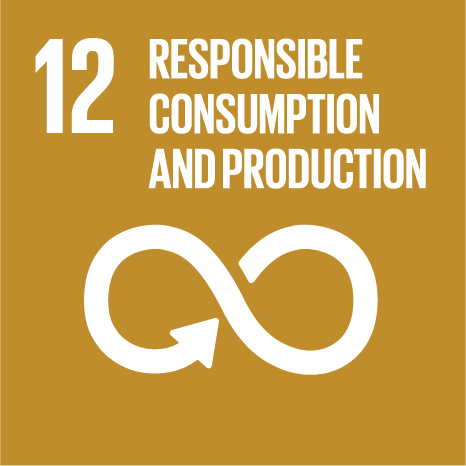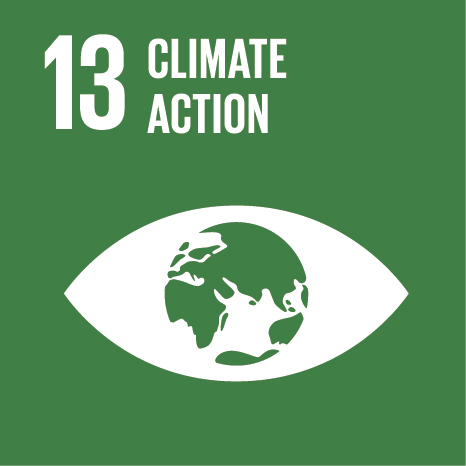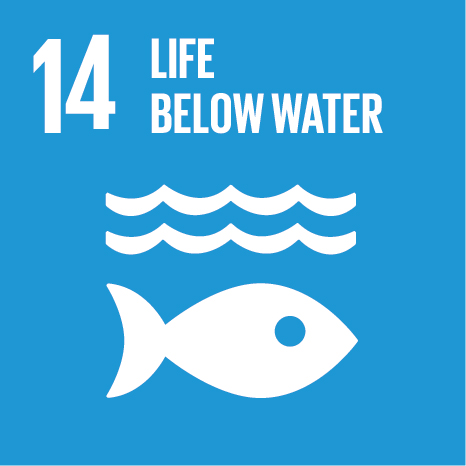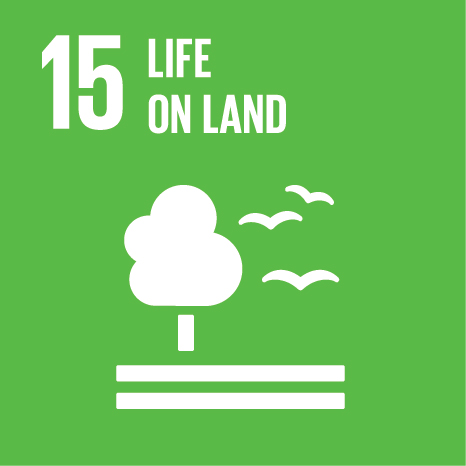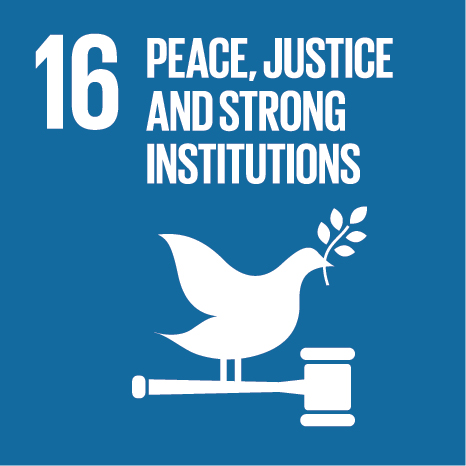SDG 2: Zero Hunger
Our Goals in Action
Campus Food Waste
Jakarta State University (UNJ) is committed to becoming a green campus through sustainable food waste management. Through the Zero Waste Campus program, UNJ encourages its academic community to separate waste at the source, particularly food waste from the cafeteria and campus activities. Organic food waste is processed into compost and liquid fertilizer for use in the campus' green spaces, while inorganic waste is recycled.
2.2.1 Does your university as a body measure the amount of food waste generated from food served within the university? If food provision is outsourced this will include requiring this data to be tracked.
Yes. In 2024, Universitas Negeri Jakarta (UNJ) conducted observational studies and internal assessments to measure food waste generated from campus food services, particularly in student canteens.
Based on data collected by campus cleaning staff and infrastructure management units, the total waste generated at UNJ was approximately 3.2 m³/day, with 65% classified as organic waste, primarily from food residues2. The food waste was categorized into:
Production waste: averaging 15 kg/week, originating from food preparation and unsold items.
Consumption waste: averaging 16.5 kg/week, resulting from uneaten food served to students.
These measurements were obtained through manual tracking and interviews with food vendors and cleaning supervisors. The findings revealed that canteens are the largest contributors to food waste on campus, and that student behavior—such as over-ordering and low awareness—plays a significant role in food waste generation.
UNJ also participated in the UI GreenMetric World University Rankings, which includes waste management indicators. Although UNJ scored well in paper and plastic reduction, the performance in organic waste processing and food waste tracking was moderate due to limited infrastructure and inconsistent procedures across campus units.
However, there is no formal policy requiring outsourced food vendors to report food waste data. The university is currently working on strengthening institutional frameworks and technical systems to improve food waste monitoring and reduction.
1. http://repository.unj.ac.id/57253/2/BAB%201.pdf
2. http://repository.unj.ac.id/59381/2/BAB%20I.pdf
Based on data collected by campus cleaning staff and infrastructure management units, the total waste generated at UNJ was approximately 3.2 m³/day, with 65% classified as organic waste, primarily from food residues2. The food waste was categorized into:
Production waste: averaging 15 kg/week, originating from food preparation and unsold items.
Consumption waste: averaging 16.5 kg/week, resulting from uneaten food served to students.
These measurements were obtained through manual tracking and interviews with food vendors and cleaning supervisors. The findings revealed that canteens are the largest contributors to food waste on campus, and that student behavior—such as over-ordering and low awareness—plays a significant role in food waste generation.
UNJ also participated in the UI GreenMetric World University Rankings, which includes waste management indicators. Although UNJ scored well in paper and plastic reduction, the performance in organic waste processing and food waste tracking was moderate due to limited infrastructure and inconsistent procedures across campus units.
However, there is no formal policy requiring outsourced food vendors to report food waste data. The university is currently working on strengthening institutional frameworks and technical systems to improve food waste monitoring and reduction.
1. http://repository.unj.ac.id/57253/2/BAB%201.pdf
2. http://repository.unj.ac.id/59381/2/BAB%20I.pdf
2.2.2.1 Total food waste
Estimated Total: 1,638 kilograms per month (≈19.7 metric tons per year)
In 2024, Universitas Negeri Jakarta (UNJ) conducted internal assessments and observational studies to estimate food waste generated within its campus, particularly from student canteens and food vendors. Based on data collected by campus cleaning staff and infrastructure management units, the food waste was categorized as follows:
Production waste: averaging 15 kg/week
Consumption waste: averaging 16.5 kg/week
"1. http://repository.unj.ac.id/57253/2/BAB%201.pdf
2. http://repository.unj.ac.id/59381/2/BAB%20I.pdf"
In 2024, Universitas Negeri Jakarta (UNJ) conducted internal assessments and observational studies to estimate food waste generated within its campus, particularly from student canteens and food vendors. Based on data collected by campus cleaning staff and infrastructure management units, the food waste was categorized as follows:
Production waste: averaging 15 kg/week
Consumption waste: averaging 16.5 kg/week
"1. http://repository.unj.ac.id/57253/2/BAB%201.pdf
2. http://repository.unj.ac.id/59381/2/BAB%20I.pdf"
2.2.2.2 Campus population
Total campus population is approximately:
36,500 – 39,000 people in 2024
https://www.doyanblog.com/universitas-negeri-jakarta-dalam-angka-statistik-dan-data-terbaru/
36,500 – 39,000 people in 2024
https://www.doyanblog.com/universitas-negeri-jakarta-dalam-angka-statistik-dan-data-terbaru/
Student Hunger
Jakarta State University (UNJ) is strongly committed to ensuring all students have access to basic necessities, including nutritious and affordable food. As a manifestation of its commitment to student hunger, UNJ offers various student welfare support programs, such as a healthy and affordable cafeteria, a scholarship program for low-income students, and dormitory services that ensure adequate food and housing for low-income students.
2.3.2 Does your university as a body provide interventions to prevent or alleviate hunger among students? (e.g. including supply and access to food banks/pantries)
In 2024, Universitas Negeri Jakarta (UNJ) implemented several educational and community-based interventions aimed at promoting food security and alleviating hunger among students and surrounding communities. Although UNJ did not yet operate a formal food bank or pantry system, the university actively contributed to hunger prevention through sustainable food access initiatives and student-led programs.
One of the most notable interventions was the Urban Farming Program, led by students from the Community Education Study Program. This initiative focused on:
Empowering communities and students to grow their own food using limited urban space.
Promoting food security awareness through education and practical training.
Utilizing organic compost and recycled materials to support sustainable agriculture1.
These efforts were aligned with the Sustainable Development Goals (SDGs), particularly SDG 2: Zero Hunger. The program emphasized inclusive strategies such as economic empowerment, education, and climate adaptation to address food insecurity.
UNJ is currently exploring similar models for future implementation, including collaborations with NGOs and student organizations to establish food-sharing platforms and sustainable food distribution systems.
"1. http://repository.unj.ac.id/50965/2/BAB%20I.pdf
2. http://repository.unj.ac.id/51178/8/BAB%20I.pdf"
One of the most notable interventions was the Urban Farming Program, led by students from the Community Education Study Program. This initiative focused on:
Empowering communities and students to grow their own food using limited urban space.
Promoting food security awareness through education and practical training.
Utilizing organic compost and recycled materials to support sustainable agriculture1.
These efforts were aligned with the Sustainable Development Goals (SDGs), particularly SDG 2: Zero Hunger. The program emphasized inclusive strategies such as economic empowerment, education, and climate adaptation to address food insecurity.
UNJ is currently exploring similar models for future implementation, including collaborations with NGOs and student organizations to establish food-sharing platforms and sustainable food distribution systems.
"1. http://repository.unj.ac.id/50965/2/BAB%20I.pdf
2. http://repository.unj.ac.id/51178/8/BAB%20I.pdf"
2.3.3 Does your university as a body provide sustainable food choices for all on campus, including vegetarian and vegan food?
In 2024, Universitas Negeri Jakarta (UNJ) provided access to sustainable food choices on campus, including vegetarian and vegan options, through both internal campus canteens and nearby partner establishments.
UNJ’s campus area is served by several food vendors and restaurants that offer plant-based menus, including:
Vegetarian-friendly canteens within the university that offer daily vegetable-based dishes and meat alternatives.
Nearby vegetarian and vegan restaurants, such as those listed in Horego’s 2024 guide to vegetarian dining around UNJ, which includes over 12 recommended establishments offering plant-based meals.
While UNJ does not yet operate a dedicated vegan cafeteria, the integration of plant-based options into campus life reflects a growing institutional awareness of food sustainability.
"1. https://www.kompasiana.com/wijayalabs/64f11e4118333e1e7c1b5fe2/kantin-blok-m-di-kampus-unj
2. https://sigmatvunj.com/wacana-kantin-sehat-blok-m-unj/"
UNJ’s campus area is served by several food vendors and restaurants that offer plant-based menus, including:
Vegetarian-friendly canteens within the university that offer daily vegetable-based dishes and meat alternatives.
Nearby vegetarian and vegan restaurants, such as those listed in Horego’s 2024 guide to vegetarian dining around UNJ, which includes over 12 recommended establishments offering plant-based meals.
While UNJ does not yet operate a dedicated vegan cafeteria, the integration of plant-based options into campus life reflects a growing institutional awareness of food sustainability.
"1. https://www.kompasiana.com/wijayalabs/64f11e4118333e1e7c1b5fe2/kantin-blok-m-di-kampus-unj
2. https://sigmatvunj.com/wacana-kantin-sehat-blok-m-unj/"
2.3.4 Does your university as a body provide healthy and affordable food choices for all on campus?
In 2024, Universitas Negeri Jakarta (UNJ) provided access to healthy and affordable food choices for students, staff, and visitors across its campuses. These options were available through both internal campus canteens and surrounding food establishments, supporting the university’s commitment to SDG 2 (Zero Hunger).
Key initiatives and facilities include:
Kantin Hijau, located behind the Rectorate building, offered nutritious meals such as salads, fresh juices, and brown rice with healthy side dishes. This canteen became a favorite among students seeking balanced meals without compromising taste or affordability.
Kantin Blok M and other campus food stalls provided a wide variety of traditional Indonesian dishes like soto, nasi goreng, mie ayam, and siomay, all priced to suit student budgets. These venues were consistently popular due to their affordability and accessibility.
Taman Kuliner Untung Suropati, a nearby outdoor food court, featured multiple vendors offering diverse and budget-friendly meals, including vegetarian options like tempeh, tofu, and vegetable-based dishes.
According to a 2024 survey by GoodStats, 49.6% of young people—including university students—preferred meals priced between Rp10,000–Rp25,000, indicating a strong demand for economical food options. UNJ’s food ecosystem aligns well with this trend, offering meals that meet both nutritional and financial needs.
While UNJ does not yet operate a centralized healthy food program, the availability of nutritious and affordable meals across campus reflects the university’s growing awareness of food sustainability and student well-being.
"1. https://www.kompasiana.com/wijayalabs/64f11e4118333e1e7c1b5fe2/kantin-blok-m-di-kampus-unj
2. https://sigmatvunj.com/wacana-kantin-sehat-blok-m-unj/
3. https://erafmunj.com/makanan-enak-di-tengah-kesibukan-kuliner-andalan-di-unj-rawamangun/
4. https://unjkita.com/rekomendasi-tempat-makan/"
Key initiatives and facilities include:
Kantin Hijau, located behind the Rectorate building, offered nutritious meals such as salads, fresh juices, and brown rice with healthy side dishes. This canteen became a favorite among students seeking balanced meals without compromising taste or affordability.
Kantin Blok M and other campus food stalls provided a wide variety of traditional Indonesian dishes like soto, nasi goreng, mie ayam, and siomay, all priced to suit student budgets. These venues were consistently popular due to their affordability and accessibility.
Taman Kuliner Untung Suropati, a nearby outdoor food court, featured multiple vendors offering diverse and budget-friendly meals, including vegetarian options like tempeh, tofu, and vegetable-based dishes.
According to a 2024 survey by GoodStats, 49.6% of young people—including university students—preferred meals priced between Rp10,000–Rp25,000, indicating a strong demand for economical food options. UNJ’s food ecosystem aligns well with this trend, offering meals that meet both nutritional and financial needs.
While UNJ does not yet operate a centralized healthy food program, the availability of nutritious and affordable meals across campus reflects the university’s growing awareness of food sustainability and student well-being.
"1. https://www.kompasiana.com/wijayalabs/64f11e4118333e1e7c1b5fe2/kantin-blok-m-di-kampus-unj
2. https://sigmatvunj.com/wacana-kantin-sehat-blok-m-unj/
3. https://erafmunj.com/makanan-enak-di-tengah-kesibukan-kuliner-andalan-di-unj-rawamangun/
4. https://unjkita.com/rekomendasi-tempat-makan/"
2.3.5 Does your university as a body provide interventions to prevent or alleviate hunger among staff? (e.g. including supply and access to food banks/pantries
Partially. In 2024, Universitas Negeri Jakarta (UNJ) did not yet operate a formal food bank or pantry system specifically targeted at staff members. However, the university has implemented community-based food security programs that indirectly benefit both students and staff, especially those living in surrounding areas affected by economic hardship.
One of the key initiatives was the Urban Farming Program conducted in Kaliabang Tengah, Bekasi Utara, by UNJ’s Faculty of Mathematics and Natural Sciences. This program aimed to:
Promote food self-sufficiency through urban farming education.
Empower local communities and university affiliates to grow vegetables on limited land.
Encourage sustainable food production using organic compost and recycled materials.
However, UNJ has not yet formally partnered with these organizations or implemented similar systems on campus.
The university is currently exploring future collaborations and institutional frameworks to support food access for vulnerable groups, including staff, in alignment with SDG 2 – Zero Hunger.
"
1. https://drive.google.com/file/d/1aX9MppFpNONcPN4OVW4mI5z29kzsfVpM/view?usp=sharing
2. https://saku.unj.ac.id/storage/lampiran_pengumuman/f_202403270958_se-tentang-pelaksanaan-anggaran-tahun-anggaran-2024-di-linggkungan-unj.pdf
One of the key initiatives was the Urban Farming Program conducted in Kaliabang Tengah, Bekasi Utara, by UNJ’s Faculty of Mathematics and Natural Sciences. This program aimed to:
Promote food self-sufficiency through urban farming education.
Empower local communities and university affiliates to grow vegetables on limited land.
Encourage sustainable food production using organic compost and recycled materials.
However, UNJ has not yet formally partnered with these organizations or implemented similar systems on campus.
The university is currently exploring future collaborations and institutional frameworks to support food access for vulnerable groups, including staff, in alignment with SDG 2 – Zero Hunger.
"
1. https://drive.google.com/file/d/1aX9MppFpNONcPN4OVW4mI5z29kzsfVpM/view?usp=sharing
2. https://saku.unj.ac.id/storage/lampiran_pengumuman/f_202403270958_se-tentang-pelaksanaan-anggaran-tahun-anggaran-2024-di-linggkungan-unj.pdf
Proportion of graduates in agriculture and aquaculture including sustainability aspects
Jakarta State University (UNJ) consistently contributes to education and research related to agriculture, food security, and environmental sustainability, despite not being a directly agriculture-based university. Through various study programs such as Biology Education, Geography Education, Environmental Science, and Culinary Arts, UNJ produces graduates who understand the principles of sustainable agriculture, food ecosystems, and sustainable natural resource management.
Students are equipped with skills in urban farming practices, hydroponics, local food processing, and organic waste management, which are part of the curriculum and applied research projects. Furthermore, UNJ actively collaborates with local governments and communities in urban agriculture education activities and the development of environmentally friendly food products.
The high proportion of graduates from these related fields demonstrates UNJ's commitment to Sustainable Development Goal (SDG) 2 – Zero Hunger and SDG 12 – Responsible Consumption and Production, by preparing human resources who care about food and environmental sustainability.
Students are equipped with skills in urban farming practices, hydroponics, local food processing, and organic waste management, which are part of the curriculum and applied research projects. Furthermore, UNJ actively collaborates with local governments and communities in urban agriculture education activities and the development of environmentally friendly food products.
The high proportion of graduates from these related fields demonstrates UNJ's commitment to Sustainable Development Goal (SDG) 2 – Zero Hunger and SDG 12 – Responsible Consumption and Production, by preparing human resources who care about food and environmental sustainability.
2.4.2 Number of graduates from agriculture and aquaculture courses including sustainability aspects
Estimated Number: 50–60 graduates (Biology and Environmental Management-related programs)
Although Universitas Negeri Jakarta (UNJ) does not offer dedicated agriculture or aquaculture degree programs, it does provide Biology and Environmental Management programs that incorporate sustainability aspects, particularly in biodiversity conservation, environmental education, and resource management.
1. Biology Program (S1 Biologi – FMIPA UNJ)
The Biology undergraduate program focuses on biodiversity, sustainable use of biological resources, and environmental conservation.
Graduates are trained in areas such as ecology, biotechnology, environmental impact assessment (AMDAL), and sustainable development.
Between 2017 and 2021, the Biology Education program graduated 266 students, averaging around 50–60 graduates per year.
2. Environmental Management (S2 Manajemen Lingkungan)
UNJ offers a Master’s program in Environmental Management under its postgraduate school.
This program addresses sustainable development, environmental policy, and ecological risk management.
While exact graduate numbers for 2024 are not publicly available, the program contributes to the university’s sustainability-focused academic output.
"1. https://fmipa.unj.ac.id/pbiologi/mahasiswa-lulusan/
2. https://unjkita.com/daftar-jurusan-di-universitas-negeri-jakarta/"
Although Universitas Negeri Jakarta (UNJ) does not offer dedicated agriculture or aquaculture degree programs, it does provide Biology and Environmental Management programs that incorporate sustainability aspects, particularly in biodiversity conservation, environmental education, and resource management.
1. Biology Program (S1 Biologi – FMIPA UNJ)
The Biology undergraduate program focuses on biodiversity, sustainable use of biological resources, and environmental conservation.
Graduates are trained in areas such as ecology, biotechnology, environmental impact assessment (AMDAL), and sustainable development.
Between 2017 and 2021, the Biology Education program graduated 266 students, averaging around 50–60 graduates per year.
2. Environmental Management (S2 Manajemen Lingkungan)
UNJ offers a Master’s program in Environmental Management under its postgraduate school.
This program addresses sustainable development, environmental policy, and ecological risk management.
While exact graduate numbers for 2024 are not publicly available, the program contributes to the university’s sustainability-focused academic output.
"1. https://fmipa.unj.ac.id/pbiologi/mahasiswa-lulusan/
2. https://unjkita.com/daftar-jurusan-di-universitas-negeri-jakarta/"

 SIGN IN WITH GOOGLE
SIGN IN WITH GOOGLE
